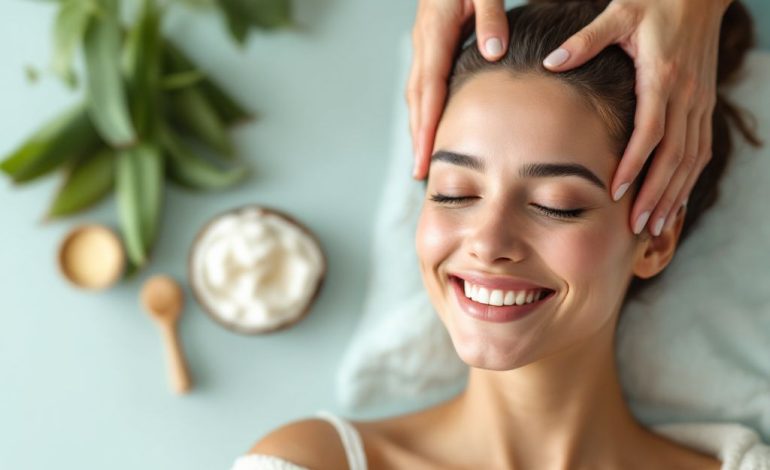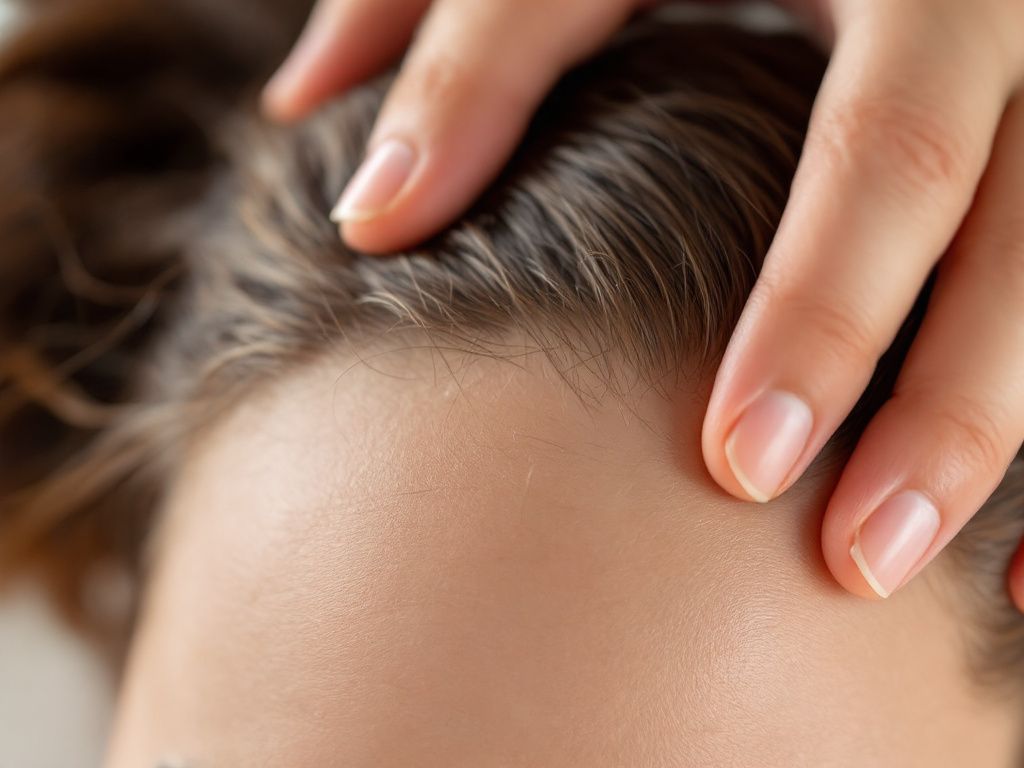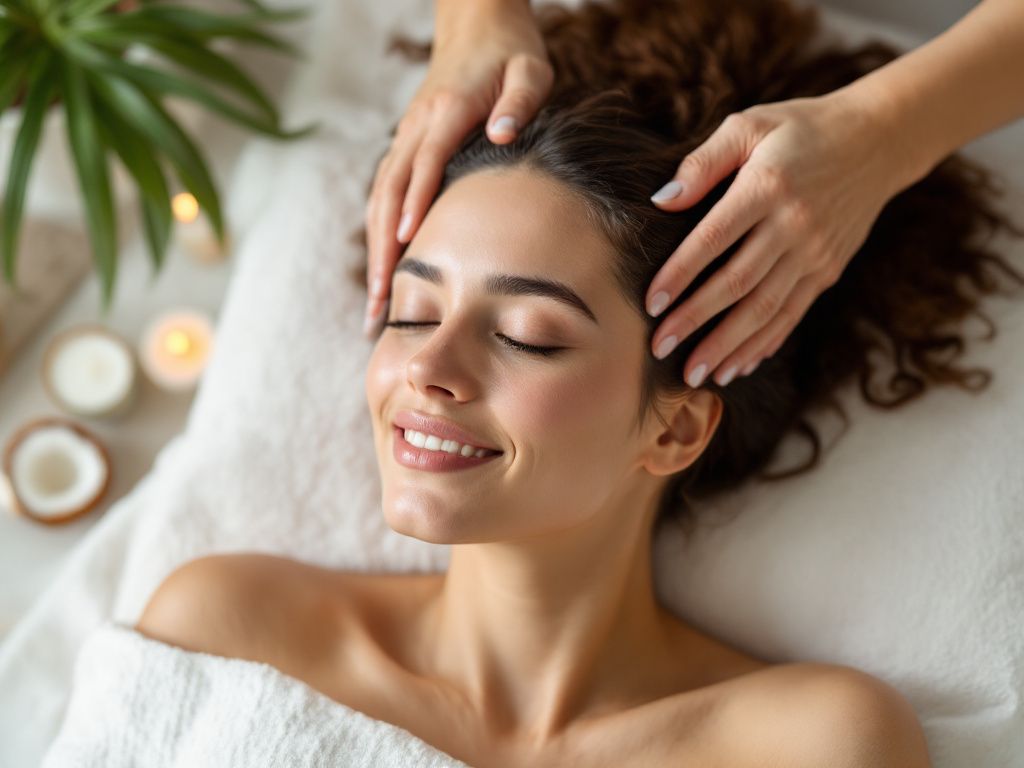Natural Remedies for Scalp Health: Your Go-To Guide

Ever found yourself scratching your head—not just over life’s mysteries, but literally? You’re not alone. Many folks experience itchy, dry, or greasy scalps that just won’t quit. It’s a common cry for help busy folks like us hear our scalps demanding one too many times. And boy, wouldn’t it be great if there were easy, natural remedies for scalp health? Real, honest-to-goodness fixes hiding in those kitchen cupboards? Lucky for us, nature’s got our backs. Let’s dive into some simple, down-to-earth ways to give your scalp a bit of TLC.
Understanding the Scalp Struggle
You might be wondering, what’s causing this fingertip fiesta on your head? Often, scalp issues arise from the usual suspects like oil imbalance, dandruff, dryness, or even just using the wrong products. Sometimes our lovely seasons spice up the challenge with humidity or the dry chill of winter. Environmental factors or stress—yes, stress!—can mess up our scalp situation too.
So, what’s the antidote? It’s simpler than you think: going natural. It’s not just good for the scalp; it’s also kind to the wallet. No need to run to the fancy hair aisle with eyes wide open at the dizzying array of treatments. Instead, head to your pantry. Seriously, it’s a treasure trove of natural remedies for scalp health.
The Power of Tea Tree Oil
First up, meet the queen of oils—tea tree oil. This guy is a powerhouse for dealing with dandruff and controlling oiliness. Its anti-inflammatory and antibacterial properties make it a best friend for your angry scalp. Trust me on this one, a couple of drops go a long way.
How to Use Tea Tree Oil
Add about 5-10 drops to your regular shampoo for a soothing wash. Feeling fancy? Mix it with a carrier oil like coconut or olive oil. Massage the mixture gently onto your scalp and let it sit pretty for 10-15 minutes, rinsing afterward. Feel that comfort wash over you? Yep, that’s tea tree magic.
Coconut Oil: The All-In-One Champion

Coconut oil is like the Swiss army knife of natural remedies for scalp health. It’s great for fighting dryness, an itchy feeling, and even reducing dandruff. Packed with fatty acids, it works to deeply condition and soften the scalp.
How to Use Coconut Oil
Just warm a few tablespoons and gently massage into your scalp. Let it marinate for at least 30 minutes, or leave it overnight for deeper love. Rinse thoroughly with a mild shampoo in the morning. Go ahead, give it a try. Your scalp will thank you.
Apple Cider Vinegar: A Balancing Act
Another biggie on our list: apple cider vinegar. Those of you battling an oily scalp, this one’s for you. It helps by balancing pH levels while wielding antifungal powers against dandruff. A natural all-rounder!
How to Use Apple Cider Vinegar
Create a mix—one part vinegar with two parts water—and apply it post-shampoo. Massage it in and leave it to settle for about five minutes before rinsing off. The beauty of this vinegar trick is that its residual smell doesn’t linger—thank goodness!
Aloe Vera: Calm in a Bottle
Aloe vera isn’t just a sunburn savior, but a scalp soother too. For those with inflamed, sensitive skin under their hair, aloe vera’s calming juice does wonders.
How to Use Aloe Vera

Take fresh aloe vera gel and massage the goo onto your scalp. Let it seep for about 20 minutes before washing it off gently. The cool sensation? Well, that’s the start of your happy scalp story!
Jot This Down: A Handy Essential Oil List
Essential oils are like your army of scalp defenders. Besides tea tree and coconut oils mentioned earlier, here’s a noteworthy brigade:
- Lavender Oil: For soothing inflammation and fighting fungi.
- Peppermint Oil: Boosts circulation – helps with revitalizing growth.
- Rosemary Oil: Reduces flakes and itchiness.
Quick Guide to Essential Oils
Combine a few drops with your favorite carrier oil, moisturize your scalp, sit back, and relax. Remember, little but sparingly!
Don’t Forget These Habits
Let’s get real for a minute. You can’t fix everything with a potion. Good practices top together a regimen of remedies for long-lasting scalp health.
Tips to Live By
- Hydrate: Keep those scalp cells happy and moist.
- Diet: Omega-3 rich foods and proteins promote health from the inside out.
- Stress Less: Spare a few moments to relax daily to help your scalp not sweat it.
- Be Gentle: Friends don’t roughhandle one another—apply the same to your haircare tools.
DIY Scalp Mask Recipes

Nothing says self-care like a good ole DIY mask. Homegrown scalp remedies have been passed down through generations. Let’s make those ancestors proud and grab a bowl.
Avocado & Egg Mask
- Ingredients: 1 ripe avocado, 1 egg
- Instructions: Mash avocado and mix in a beaten egg. Apply generously to your scalp, massage, and let it soak for 30 minutes. Rinse with cool water.
Banana & Honey Balm
- Ingredients: 1 banana, 1 tablespoon honey
- Instructions: Blend until smooth, apply onto the scalp, and leave for about 15 minutes. Rinse off and feel the moisturized difference.
Wrapping It Up: The Journey to a Happy Scalp
Caring for your scalp with natural remedies is not just about resolving a bad hair day—it’s about everyday diet influences and stress levels too. At first, finding what works might seem like a maze, but experimenting is half the fun.
The key? Listen to your scalp. Trust me, it’ll have its moments whether now or later. With commitment, those natural remedies for scalp health will sing through every strand.
Now, the old scalp struggles may dance back now and then, but your toolbox is ready. Equip it with delight and nurture your roots; they hold the crown, after all!
Frequently Asked Questions
What are the benefits of using a hair mask in my hair care routine?
Using a hair mask can provide several benefits, including hydration, smoothing, strengthening, curl definition, heat protection, and damage repair. Hair masks infuse the hair with moisture, help coat the hair shaft to seal split ends, reduce breakage, and protect the hair from heat styling and environmental damage[1][4].
What ingredients should I look for in a hair mask?
Effective hair masks often include ingredients such as coconut oil, argan oil, shea butter, honey, avocado oil, green tea, and coconut water. These ingredients provide nourishment, moisturize, and protect the hair, offering benefits like softening, moisturizing, and protecting against damage[2][5].
How often should I use a hair mask in my routine?
You should use a hair mask whenever your hair feels dry, unmanageable, or in need of intense hydration. This can vary depending on your hair type and needs, but generally, using a hair mask once or twice a week can help maintain healthy and moisturized hair[1][4].
How do I apply a hair mask for the best results?
To apply a hair mask effectively, shampoo your hair first, then apply the mask, focusing especially on the ends where hair tends to be the most damaged. Leave the mask on for anywhere from 10 minutes to overnight, depending on the type of mask and your hair’s needs[1][4].
References







